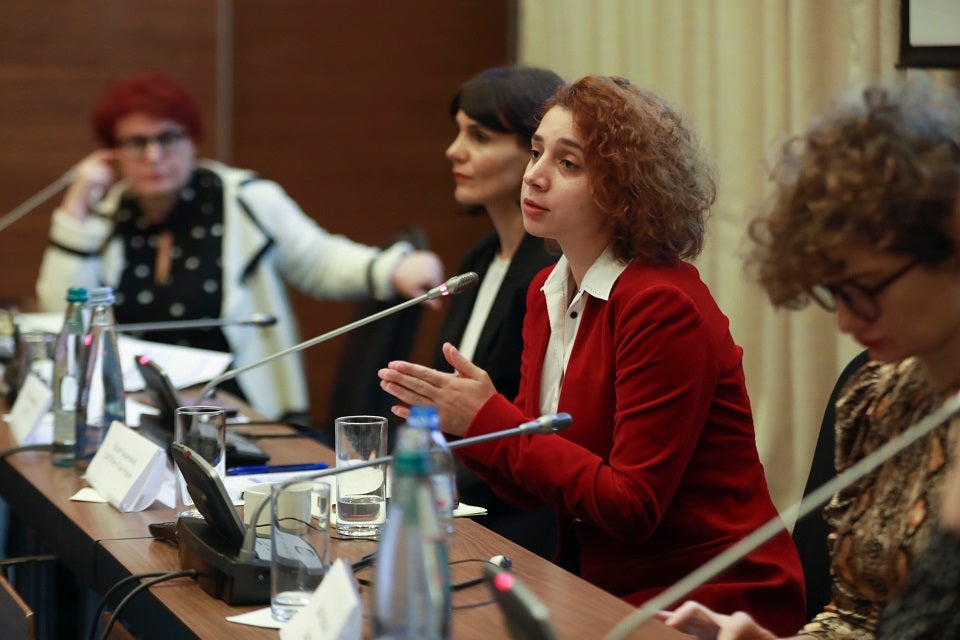Sexual harassment prevention mechanisms and progress summarized at conference
Date:

Sexual harassment is a global problem, especially in Georgia, where gender inequality and gender stereotypes are still widespread in society. Georgia’s adoption of national legislation against sexual harassment and subsequent implementation of prevention mechanisms in the public and private sectors created an opportunity to evaluate their implementation in the country.
The introduction of sexual harassment prevention mechanisms was the main topic of a conference held on 29 November within the framework of the annual 16 Days of Activism against Gender-Based Violence global campaign.
The conference was organized by UN Women, the USAID Rule of Law Program and the Council of Europe Office in Georgia. Representatives of the legislative and executive authorities, civil society, academic circles, international organizations, the media and defenders of human rights and gender equality discussed the current situation in terms of the prevention of sexual harassment.
The meeting was attended by the Public Defender of Georgia, Levan Ioseliani, who spoke about the mandate of the Public Defender as a mechanism for fighting discrimination and the benefits of defining sexual harassment as a form of discrimination. He also noted that despite the positive dynamics of the development of legal guarantees and internal mechanisms, the fight against sexual harassment remains an important challenge. There are cases when victims of discrimination refuse to use legal means to protect their rights due to the problems of gathering evidence and public pressure. The spread of sexist expressions against women involved in public and political life is also a problem, which strengthens discriminatory attitudes and is often used as a tool of political struggle against women and to silence women.
Within the framework of the conference, sessions were held and led by experts from various public and non-public organizations. Participants spoke about their own experiences of best practices, needs and challenges in implementing sexual harassment prevention mechanisms in the workplace and in higher education.
The conference facilitated a unified dialogue on successful examples of sexual harassment prevention and strengthened cooperation between stakeholders. The event was part of the Women’s Economic Empowerment component of the project “Good Governance for Gender Equality in Georgia”, which is implemented with the support of the Government of Norway.